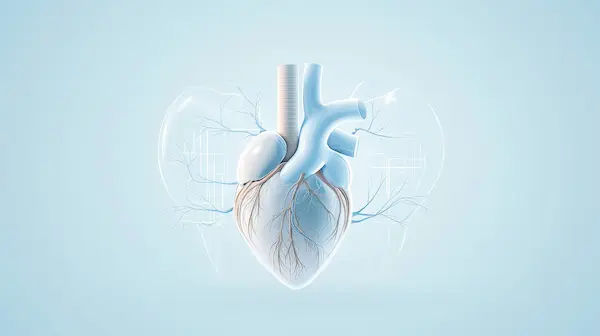- Male
- 30 Years
- 22/01/2025
I'm really worried about a friend of mine who's been having pain in their right ear and chest simultaneously for the past two days. Could you tell us who exactly we should be reaching out to for help with this? Is it something we need to be really concerned about?
Answered by 1 Apollo Doctors
ear pain with chest pain -probable diagnosis is acute coronary syndrome , an ecg ,cpkmb and trop t tests are advised. U Need to consult physician ..
Dr. Ibrahim Suggests...
Consult a Cardiologist
Answered 04/07/2025
0
0

More Cardiology Health Queries
View allI'm really worried about my husband. He's been waking up in the middle of the night sweating and struggling to breathe, and this has happened twice in just three days. We checked his blood pressure both times he woke up, and it was 148110 with a pulse of 75 the first time, and 140100 with a pulse of 85 the second time. He usually takes TeldayH every day for his high blood pressure, which generally keeps it under control. His blood sugar levels were also normal when we checked them yesterday, and his ECG was fine in January. He did have a gout attack around the same time, and his uric acid levels were 8.7 then, and he's also dealing with high cholesterol. Right now, he's on Febuxostat and Jupiros. I'm just trying to figure out why he's having these night sweats and breathing problems. Could it be related to his medication or something else?
Ecg and cardiac markers are advised to the patient. Rest contine all the medications.Also tablet levocetrizine 10 mg at bedtime,orally for 5 days is advised . Steam inhalation and saline gargles is also advised to the patient.
Answered by 1 Apollo Doctors
I've been feeling some chest discomfort lately and it's got me a bit worried. Back in 2013, I had an angiography after a positive TMT test, but everything was perfectly clear then. Now, my TMT test has come back positive again. I'm wondering what steps I should take next. Do you think I might need another angiography, or is there another approach I should consider?
If you are experiencing chest discomfort and your TMT test has come back positive again, it is advisable to consult your doctor for further evaluation. Another angiography may be recommended to assess the current status of your coronary arteries and determine the appropriate treatment plan. In the meantime, you can take medications like Aspirin 75mg once daily and Atorvastatin 20mg once daily to help manage your symptoms.
Answered by 1 Apollo Doctors
I've been experiencing this sudden sharp pain in the center of my chest for a while now, actually since middle school, about 3 to 4 years ago. Initially, it took me by surprise, but I brushed it off. It happens like 2 to 3 times a month, and I've just kind of lived with it. The thing is, it happens randomlywhether I'm just walking or chilling watching TV. What really caught my attention was that a few days ago, the pain lasted much longer than usual. It's typically 15-20 seconds, but this time, it dragged on for a solid 2-3 minutes. That got me a bit worried. I havent told my parents yet because I feel okay now, but could it be something serious that I should be concerned about? Any ideas on what this chest pain might be would really help.
panrip 40mg for 3 days and chest xray for further review
Answered by 1 Apollo Doctors
Disclaimer: Answers on Apollo 247 are not intended to replace your doctor advice. Always seek help of a professional doctor in case of an medical emergency or ailment.




